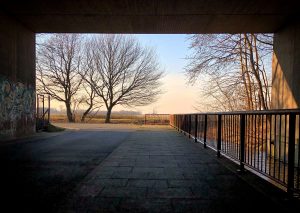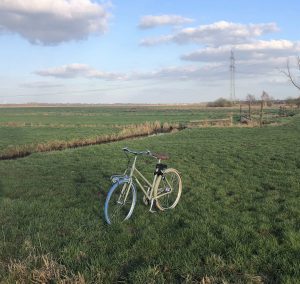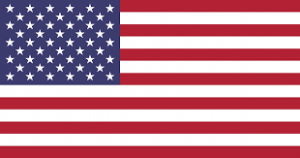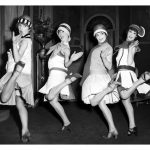Stasi
by Sandi Kadric ‘20
 We visited the Stasi Museum and prison. We learned about the operations of Stasi, and how involved they were in East and somewhat West Germany. In the museum, we saw how many files they had for each individual, e.g. what they bought, where they lived, where they worked, what facial features they had, etc. We looked at the technology they used to spy on others and how outdated it seems today. Our tour guide also explained how Stasi members were trained, and how they would spy on people such as going into their apartments when the family was away. The tour guide did a great job of explaining how big of an influence the Stasi was, and how much bigger they were than other organizations such as the Gestapo. We also visited a Stasi prison and the tour guide was falsely imprisoned. He showed us all the prison rooms and he shared his experiences. He explained the circumstances and situations in the prison really well, such as sanitary conditions, the mental, physical, and emotional abuse. The tour guide shared his own experience of how he was captured, and how it was a struggle to have a normal life after being in prison for so long when he was finally released.
We visited the Stasi Museum and prison. We learned about the operations of Stasi, and how involved they were in East and somewhat West Germany. In the museum, we saw how many files they had for each individual, e.g. what they bought, where they lived, where they worked, what facial features they had, etc. We looked at the technology they used to spy on others and how outdated it seems today. Our tour guide also explained how Stasi members were trained, and how they would spy on people such as going into their apartments when the family was away. The tour guide did a great job of explaining how big of an influence the Stasi was, and how much bigger they were than other organizations such as the Gestapo. We also visited a Stasi prison and the tour guide was falsely imprisoned. He showed us all the prison rooms and he shared his experiences. He explained the circumstances and situations in the prison really well, such as sanitary conditions, the mental, physical, and emotional abuse. The tour guide shared his own experience of how he was captured, and how it was a struggle to have a normal life after being in prison for so long when he was finally released.
B.K. and Christa Tragelehn
by Liz Bodenman ‘20
After a few days in Berlin learning about the living conditions in East Germany, on Saturday, January 13th, we had the pleasure of meeting a man and his wife who had, as I like to put it, lived the full East German experience. They had lived not only through the everyday difficulties in the GDR, but through the specialized difficulties of being at the center of a theater scandal. Theater Director, author, and translator B.K. Tragelehn, an older, kind-eyed gentleman who enjoys stroking his cat and smoking cigars, welcomed us into his warm and cozy apartment for a chat and “Kaffee und Kuchen.” As we entered, his wife began serving us immediately, being the perfect hostess, and letting us gawk at the 18,000 books that covered their walls.

Christa & B.K. Tragelehn (middle) with group (Mary, Dr. Ludwig, Liz, Sandi, Dr. Falk Strehlow)
Gently puffing away at his cigar, Herr Tragelehn recounted the pinnacles of his life. Being a child in Dresden whose family was subjected to the WWII bombings (firestorm). Befriending and working alongside famous playwrights and theater directors such as Bertolt Brecht, Erich Engel, and Heiner Müller. Meeting his wife for the first time (who he has been with for over fifty-five years). And perhaps most fascinating, being sentenced to work in the coal mines after directing the

B.K. Tragelehn with Liz
GDR-critical play Die Umsiedlerin in 1961. His wife chipped into the story too, explaining how difficult it was to live on little money, trying to make ends meet while her husband toiled in the mines.
Visiting the Tragelehns was my favorite part of Dickinson in Bremen’s Berlin excursion. It was truly awesome to meet such kind Berliners who were willing to give us a glimpse into the East German world. It was a very valuable, memorable experience.

Mary, Dr. Ludwig, Liz, Sandi (from left) at the German Historical Museum














